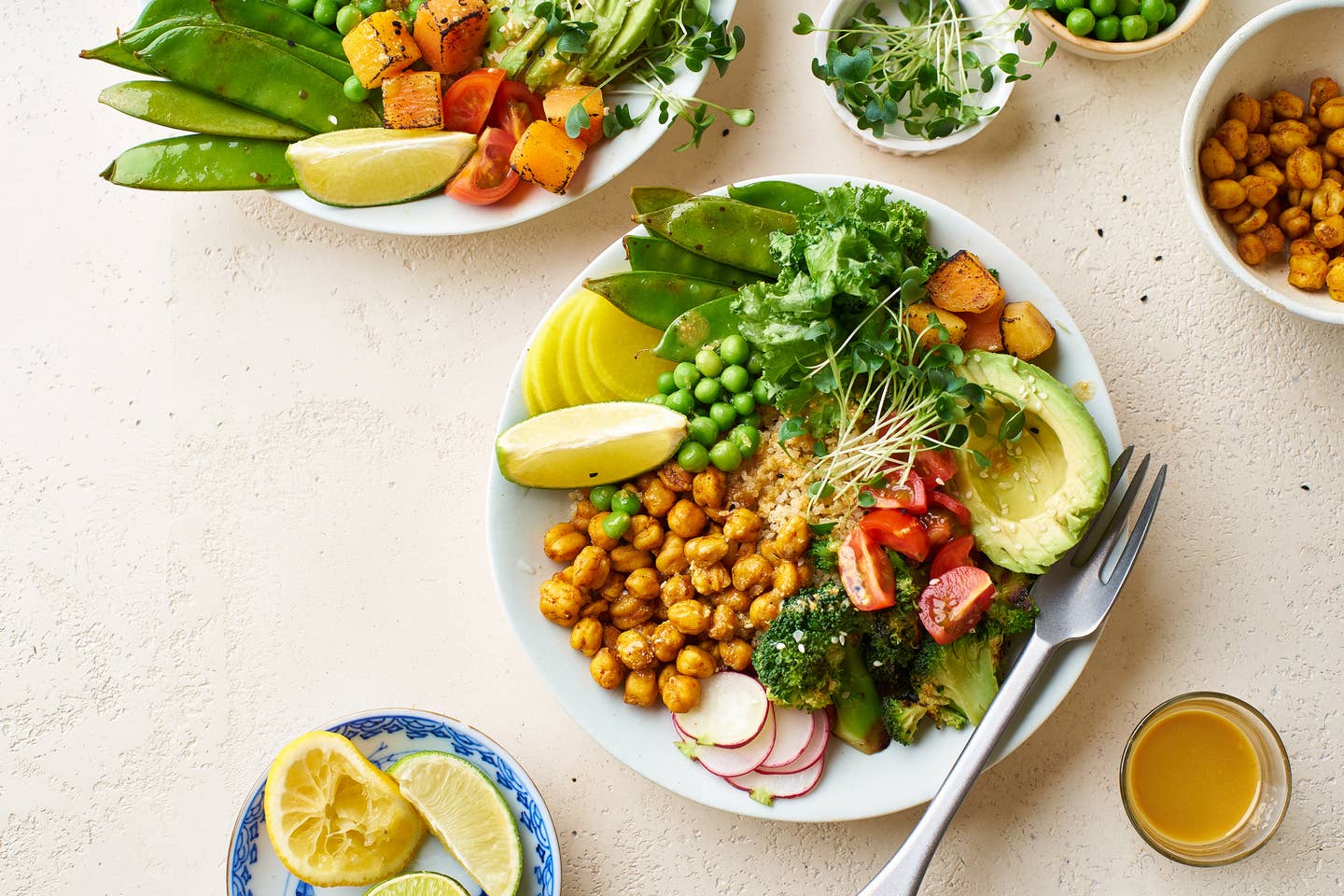
How a Plant-Based Diet Boosts Mood, Mind, and Memory, From a Psychiatrist
Imagine if we could gain more focus or increase memory by shifting what we eat. What if we could eliminate or reduce irritability or anxiety just by bringing in a whole foods plant-based diet? Even better, what if we could ward off Alzheimer’s or dementia by maintaining a diet high in dark leafy greens, whole carbs, nuts, seeds, and fruit? Sounds too good to be true, doesn’t it?
In a previous interview, Dr. Dean Ornish said that he was studying and believed there to be a relationship between Alzheimer’s Disease and diet. My interest has been piqued ever since. This is why I wanted to sit down to discuss the relationship between mental well-being and diet with a board-certified psychiatrist, Dr. Ashok Nagella. Our video interview as well as a portion of the chat is below.
Elysabeth Alfano: Lovely, I’m so happy that you’re here. There’s such a connection between diet and mental health, diet and staying strong, diet and anger management, even diet and depression. I know you work in this area. I wondered if you could help us understand the connection between diet and general mental health.
Dr. Ashok Nagella: Sure, I agree there’s definitely a connection between mental health and diet. I’ve seen it anecdotally in the clinic setting. Also, there’s a significant amount of research to support that and evidence-based research. So based on the research, inflammation of the brain may play a significant role in causing or perpetuating mental illness and neurocognitive disorders.
So, what I mean by mental illness is, the most common things we see in psychiatry are depression, anxiety, ADD, ADHD, bipolar disorder, and schizophrenia. Those are just a few of the main ones. And also, neurocognitive disorders, what I mean by that is Alzheimer’s, dementia– that’s probably the most common, and Vascular Dementia.
So, it turns out inflammation plays a major role in those conditions. A low inflammation diet can often significantly reduce or even prevent the symptoms of these devastating illnesses while also improving cognition. So, what I mean by that is increasing attention, focus, processing speed, and memory.
EA: Is this something that changing your meal plan- like let’s say you just change what you eat for breakfast- is that enough or do you really have to go 100 percent getting rid of the inflammatory foods which are basically meat and dairy, and sugar, I believe.
AN: Right, I always recommend going as far as possible where you just get much more robust results that way. So, the ideal low inflammatory diet is the whole foods plant-based diet based on all the research that I’ve done on this topic. So, the whole foods plant-based diet is centered around fruits, veggies, nuts, seeds, whole grains, and legumes while minimizing processed foods, refined sugars, animal products, and refined carbohydrates.
One question I get frequently is “where am I going to get my Omega 3s?” because a lot of people just assume that they should just get it from fish. [However,] ideally, they should be getting it from walnuts, flax seeds, and chia seeds. These are excellent sources of Omega 3s that improve cognition and mood. While fish do provide Omega 3s, they also increase cholesterol and saturated fat which can predispose an increased risk of heart disease. Fish we have to remember, too, contain mercury, PCBs, and dioxins, which are harmful to our body.
EA: Something that I’m a big fan of is hemp seeds just because you don’t have to grind them like you have to grind chia and flax seeds, and they also give me some Omega 3s and Omega 6s. I try to work that into breakfast almost every day.
I can understand what you’re saying about diet and depression because of course if you’re not feeling well– if your diet is not making you feel great, it’s going to slow you down. To be fair that might even be true if you were living on let’s say Twizzlers which are vegan but maybe not really what we’re talking about here. So, you really want to keep the processed foods to a minimum even if you are vegan.
But I’ve heard plant-based athletes talk about the connection between diet and anger management and once they went to a plant-based diet they were able to really keep their anger issues in control. I wonder if you ever see anything like that.
AN: Yes, I do actually. Research definitely shows that anger, hostility, and irritability are symptoms that we often see in depression and anxiety, and the research shows that a low inflammation diet such as a whole foods plant-based diet is shown to reduce these symptoms.
Foods that actually have a higher tryptophan content include saffron, leafy greens, and sunflower seeds [are also important.] The reason why tryptophan is important is that tryptophan is an amino acid that gets converted to serotonin in our body and in our brains. So, any foods that increase serotonin will help you treat depression, anxiety, and anger more optimally.
EA: I thought tryptophan was something not good for you, so thank you for schooling me on this. I thought it was found in turkey, do I have that wrong?
AN: It is but I think there are healthier sources of it. So, tryptophan we want it to convert to 5-hydroxytryptophan which is actually what serotonin is. But there are healthier sources of serotonin and tryptophan out there than turkey.
EA: So, you really advocate for a whole foods plant-based diet and I’ll say as a recently licensed food for life instructor with the Physicians’ Committee for Responsible Medicine, I do too. Can you give some examples of what you would suggest people eat on a daily basis?
AN: Sure, [some examples are] leafy greens, broccoli, mushrooms, saffron, sunflower seeds, pumpkin seeds, fruits, vegetables. Kale is excellent as well as sweet potatoes.
There it is again: inflammation is the cause of so much damage to our bodies, even including our brain, the largest muscle in the body! As we look to keep inflammation to an absolute minimum, bring on those dark leafy greens, whole grains, seeds, nuts, fruits, legumes, beans, and – to treat yourself for being so good – don’t forget the dates!
Elysabeth Alfano is a plant-based business consultant and helps people transition to a plant-based diet. Follow her @ElysabethAlfano on all platforms and at ElysabethAlfano.com
More From The Beet






